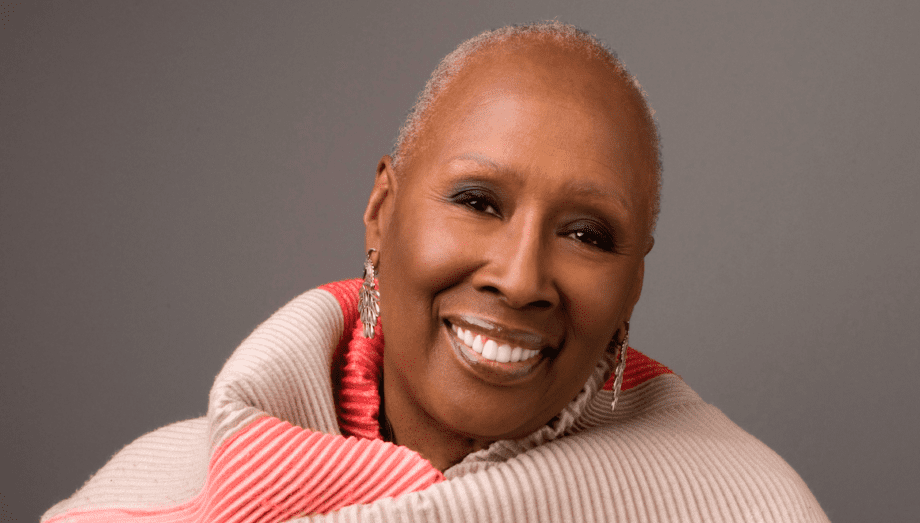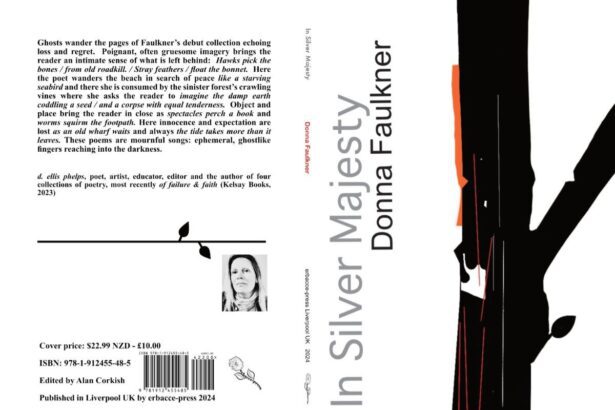Judith Jamison. | Photo by Andrew Eccles
AN ELEGANT FORCE and transformative figure in the dance world, Judith Jamison died on Nov. 9 in New York City. She was 81. A dancer, choreographer, and artistic director, Jamison worked with many prominent figures early on, including Agnes de Mille, Carmen de Lavallade, and Geoffrey Holder, but she was most closely associated with Alvin Ailey. She joined Alvin Ailey American Dance Theater in 1965, becoming Ailey’s muse and the company’s principal dancer and star.
Ailey’s profound works were imbued with the African American experience and Black cultural expression. In 1971, Jamison originated “Cry,” a three-part, 17-minute solo choreographed by Ailey. Created as a birthday present for his mother, Ailey said the work was a universal tribute “dedicated to all Black women everywhere.”
Jamison worked with Ailey for 15 years, performing around the world. When she departed in 1980, she spent nine years dancing on Broadway, choreographing for Ailey, serving as a guest artist with other dance companies, and briefly forming her own, The Jamison Project. Ailey asked her to return as artistic director in 1989. He was ailing and died at the end of the year. Jamison led the company for 21 years, taking it to new heights, fortifying it financially and creatively.
“Under her leadership, the company not only came out of debt for the first time; it also grew in size and budget and became even more popular, keeping up a nearly unparalleled schedule of national and international tours,” according to the New York Times. “In 2005, it opened the Joan Weill Center for Dance, a sleek multistory headquarters in Midtown Manhattan with a claim to being the largest building in the country devoted exclusively to dance.” Jamison retired from Ailey in 2011 and remained artistic director emerita.
Let me leave you with one last thought. Here we are, in the 21st century, still fighting for civil rights. Not a day goes by that we are not made aware of the struggle that continues. I believe that dance can elevate our human experience beyond words.” — Judith Jamison
BORN IN PHILADELPHIA, PA., Jamison began studying ballet at the age of 6. She danced throughout her school years and eventually attended Fisk University. Her stay at the HBCU in Nashville, Tenn. was brief. After a few semesters, she decided to enroll at the Philadelphia Dance Academy with her sights set on pursuing dance professionally. (The school later became a part the University of the Arts, which permanently closed earlier this year.)
In 1993, Jamison published her autobiography, aptly titled “Dancing Spirit.” More than two decades later, Jamison gave a TED Talk in 2019. She shared her story, her path to dance and to Ailey and provided context for the purposeful work of the company.
Judith Jamison in Alvin Ailey’s “Cry.” | Photo by R. Faligant
“If you were Black and African American and a dancer, any time between the ’40s and the ’70s, you had much to say, because your complete voice was not being heard. And you were not being represented as you truly were,” Jamison said. “Alvin Ailey had the courage, right in the middle of the Civil Rights Movement, to present the truth about who we were—that our creativity, our beauty, our intelligence, our talents were an intrinsic part of the panoply of American culture.”
She added: “Our mantra has always been to educate, to entertain, and to lift our audiences. Mr. Ailey believed that dance came from the people and needed to be delivered back to the people. We didn’t dance in a vacuum. It was our mission to serve people.”
THE TED PRESENTATION began with a trio of dancers performing a vignette from “Revelations” and after Jamison engaged the audience, the talk concluded with a single dancer performing an excerpt from “Cry.” Introducing “Cry,” Jamison explained the vision for the work:
“It’s about a proud woman who has been to hell and back, from her journey across the Atlantic. She’s exhausted, she’s a queen, and in this section, you’re going to see she is triumphant. She made it, and she is, in that last step that she does, beating away anything negative with her tremendous strength. And in the last step, she digs into the earth and she reaches into the sky…because she’s clearing space for the next journey,” Jamison said.
“I performed it in 1971, and we are still clearing space. Now let me leave you with one last thought. Here we are, in the 21st century, still fighting for civil rights. Not a day goes by that we are not made aware of the struggle that continues. I believe that dance can elevate our human experience beyond words. And when you’re sitting in the dark, in the theater, having a personal experience, you don’t feel blocked or misunderstood. You feel open, alive, and, we hope, inspired.” CT
FIND MORE about Judith Jamison in her New York Times obituary and on the website of Alvin Ailey American Dance Theater
“Edges of Ailey,” an expansive exhibition exploring the life, artistic practice, and legacy of Alvin Ailey is on view at the Whitney Museum of American Art in New York, from Sept. 25, 2024-Feb. 9, 2025
Alvin Ailey and Judith Jamison. | Photo by Jack Mitchell. © Alvin Ailey Dance Foundation, Inc. and Smithsonian Institution
Judith Jamison in Alvin Ailey’s “Revelations.” | Photo by Jack Mitchell. © Alvin Ailey Dance Foundation, Inc. and Smithsonian Institution
Revelations From a Lifetime of Dance: Judith Jamison delivers a TED Talk with performances by members of the Alvin Ailey American Dance Theater (April 2019). | Video by TED
From left, Judith Jamison, Mikhail Baryshnikov, and Alvin Ailey. In 1976, Ailey created the modern dance “Pas De Duke” for Jamison and the Russian ballet star. | Photo by Jack Vartoogian
Judith Jamison with Bill Clinton at Kennedy Center Honors, 1999. | White House Photo
Judith Jamison and Sylvia Waters in Alvin Ailey’s “Revelations.” | Photo by Jack Mitchell. © Alvin Ailey Dance Foundation, Inc. and Smithsonian Institution
Judith Jamison in Alvin Ailey’s “Revelations.” | Photo by Aigles
Judith Jamison at the groundbreaking for The Joan Weill Center for Dance, 2005. | Photo courtesy of Aliey Archives
Judith Jamison in Geoffrey Holder’s “Prodigal Prince,” 1967. | Photo by Jack Mitchell. © Alvin Ailey Dance Foundation, Inc. and Smithsonian Institution
Judith Jamison in Alvin Ailey’s “The Mooche.” | Photograph by Henry Wolf, Published in New York Magazine, Nov. 10, 1975
Judith Jamison and the Company rehearsing “Revelations.” | Photo by Jack Mitchell. © Alvin Ailey Dance Foundation, Inc. and Smithsonian Institution
Judith Jamison and Robert Battle with Alvin Ailey American Dance Theater (April 28, 2010). | Photo by Paul Kolnik
Judith Jamison in John Butler’s “Facets,” 1976. | Photo by Jack Mitchell. © Alvin Ailey Dance Foundation, Inc. and Smithsonian Institution
Honoree and Artistic Director Emerita Judith Jamison delivers opening remarks at Ailey’s 2023 Opening Night Gala. | Photo by Christopher Duggan
Honoree and Artistic Director Emerita Judith Jamison with Ailey Company Members at the 2023 Opening Night Gala. | Photo by Pete Monsanto
IMAGES: All Photos Courtesy Alvin Ailey American Dance Theater
BOOKSHELF
Judith Jamison published her autobiography “Dancing Spirit” in 1993. Also consider, “Judith Jamison: Aspects of a Dancer” and “Alvin Ailey American Dance Theater: Jack Mitchell Photographs,” which includes a foreword by Jamison. “Edges of Ailey” is a hefty, all-encompassing new volume documenting the Whitney Museum of American Art exhibition and the life and artistic legacy of Ailey. The publication includes conversations with several figures in his orbit, Jamison among them.



















